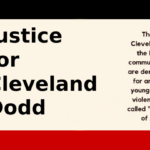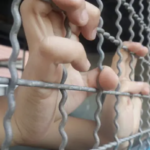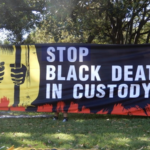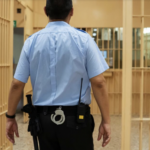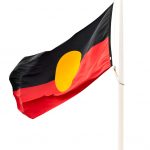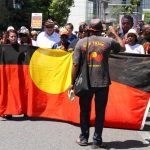As Cleveland Dodd’s Custody Death Goes to Inquiry, Kids Are Still Held in an Adult Prison
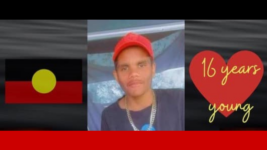
Cleveland Dodd, a 16-year-old First Nations boy, was found unresponsive in his prison cell at around 2 am during routine checks at Perth’s Casuarina Prison, an adult maximum-security facility that’s been operating Unit 18, a wing for child inmates, and yet he hadn’t even been convicted of a crime.
The remanded teenager was found unconscious because he’d attempted to take his own life. And 12 hours prior, he’d heard that his bail hearing had been delayed for a third time, which meant there was a chance of getting out, but in the meantime, he’d have to remain in the notorious Unit 18.
Dodd’s family said in a 20 October statement that he’d “never, ever self-harmed prior to being unlawfully locked down, day after day, inside Unit 18, and drove him to take his own life in desperation, in the early hours of October 12, 2023”.
The First Nations teenager was revived on being found, only to die in hospital a week later, as life support was turned off after 10 pm on 19 October. Dodd had even made two calls to staff warning of what he was going to do, but those on duty paid him little attention.
“We, as a First Nations people, have been suffering from one generation to another, and we cannot stand by and watch this carnage on our children”, the family continued, pointing to the crisis in Aboriginal deaths in custody and the overrepresentation of First Nations people in prisons.
But as the coronial inquest into the Aboriginal boy’s death in an adult prison begins on Wednesday, Unit 18 continues to operate, as WA premier Roger Cook and corrective services minister Paul Papalia determined there is nowhere else to lock up 20-odd minors, they claim, must be isolated.
A system deliberately left broken
“It is society who killed Cleveland. It is governments who killed this 16-year-old. It is the sins of a nation which took this boy to a grave,” WA prison reformist Gerry Georgatos told Sydney Criminal Lawyers. “The maltreatment of children in juvenile prisons is a systemic determinant.”
“Deaths in custody are ongoing because of governments and departments diabolically minimising fallout from deaths in custody,” he continued. “Reprehensibly standing by the custodial officers rather than ensuring the procurement of truth.”
“There have been 562 Indigenous deaths in custody since the Royal Commission,” read the Deaths in Custody Real-Time Dashboard run by the Australian government on 1 April. The Royal Commission into Aboriginal deaths in custody handed down its final report on 15 April 1991.
No prison officer, police officer or corrections health officer has ever been convicted in relation to a First Nations deaths in custody, despite many questionable circumstances relating to force applied or neglect. No one has ever been convicted, even when events are captured on camera.
“Let us make no mistake that prisons, child and adult, are all-out punitive affairs,” Georgatos said, and further asserted that as these deaths are ongoing, widespread and well-known, with nothing ever being done to repair the situation, it suggests the system is running to plan.
A system killing with impunity
Having researched such deaths academically, and worked in suicide prevention and with inmates, Georgatos outlines that Dodd’s death, as all custodial deaths, triggers the immediate circumstances but also those of a system that involves Australia “incarcerating in higher numbers year after year”.
Of the 42,274 adults in the Australian prison system in December, 14,463 of these inmates were First Nations people, which accounts for 34 percent of the prisoner population, yet when looking at the entire continent Aboriginal and Torres Strait Islander peoples account for only 3.2 percent of people.
This makes them amongst, if not the, most incarcerated group of people on the planet. And this is occurring within one of the richest economies on Earth – indeed, locking up people is an expensive venture, even if their human rights are neglected.
Another factor in the equation is Australian authorities love locking up kids, and in most jurisdictions, including WA and NSW, this continues to apply to those aged as young as 10, and the open secret about the struggle to raise the age is the issue mainly affects Indigenous communities.
“The high-volume exposure of First Peoples, young and old, to incarceration is the most immediate cause of Black deaths in custody,” Georgatos underscored, “mass incarceration of First Peoples.”
Minister, these are children
But the immediate circumstances of Dodd’s death, which the WA coroner will be considering, is why WA Corrective Services, the state of WA and the Cook government consider it acceptable to lock a kid up in an adult gaol, especially when they’re yet to be convicted of a crime.
Just weeks after Dodd took his own life rather than spend more time in Unit 18, the Cook-Papalia joint statement saw both men stating their thoughts were with the family, however no thought was given to the underlying causes of death, although that didn’t mean Unit 18 was left unaddressed.
“The Western Australian government is committed to the urgent improvement of Unit 18,” advised the corrections minister, “to making it a better place, until we have an alternative location suitable for managing the complex cohort housed there.”
And by late November, the Cook-Papalia tag team was spruiking a new $1 million prison wing at Banksia Hill Detention Centre to lock up around 20 kids, aged anywhere between 10- to 17-year-olds, whom continue to be imprisoned in Unit 18 to this day.
Sticking kids in adult facilities is a breach of their human rights. These corrections centres for adults are not places designed to cater for children. And in December, it was outlined in the press that at times these youths are being locked down for 24 hours a day.
Banksia Hill is the only child prison in WA, and it has increasingly been the focus of court cases, as the circumstances of treatment have been condemned as akin to the way animals might be caged. And Georgatos has been organising a class action on behalf of hundreds of former detainees.
Custody causing death
Levitt and Robinson Solicitors are leading the Banksia Hill Class Action, which was officially launched in 2021 and now has over 700 plaintiffs. And that firm will also be representing Cleveland Dodd’s family, when the coronial inquest into his death commences on Wednesday, 3 April.
“Australia killed Cleveland Dodd,” Georgatos made certain. And he added that enough resulting evidence from the multiple inquires could lead to reform. While Levitt and Robinson said early on that it considers this week’s inquiry will reveal the harms that continue to take place in Unit 18.
“Hopefully, the coronial inquest and the class action reveal just enough discoverable truth to ensure unnatural deaths in custody come to an end, and prisons are compelled to transform to positive wellbeing bastions where people are helped,” Georgatos continued.
“We often say, we weren’t put on this earth to bury our children. We also weren’t put on this earth to kill children, whether indirectly or otherwise,” the long-term social justice activist concluded.


